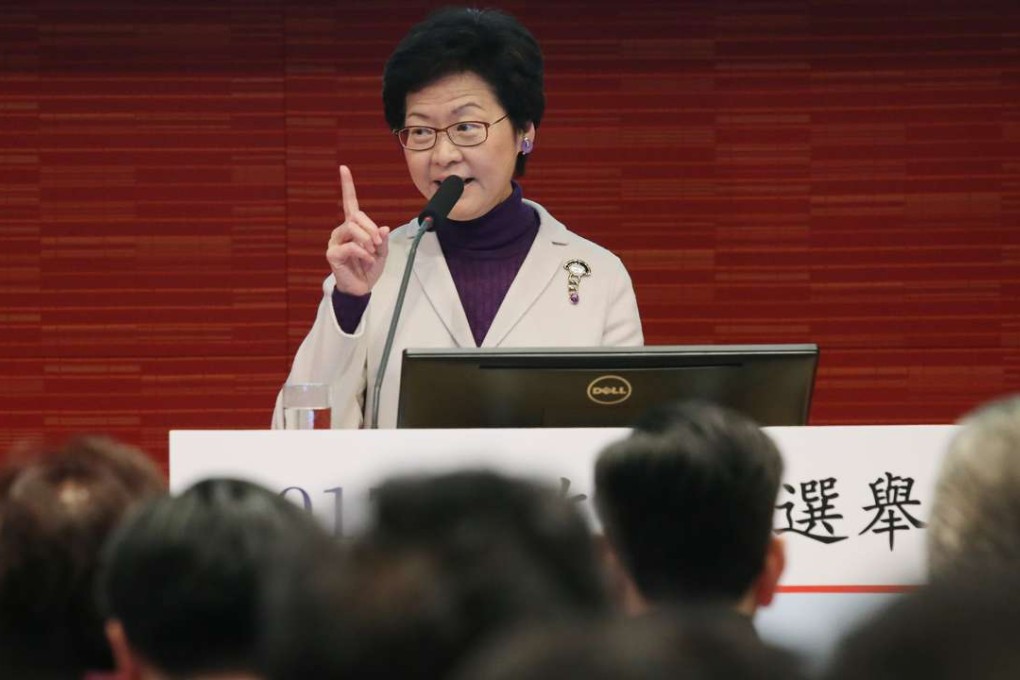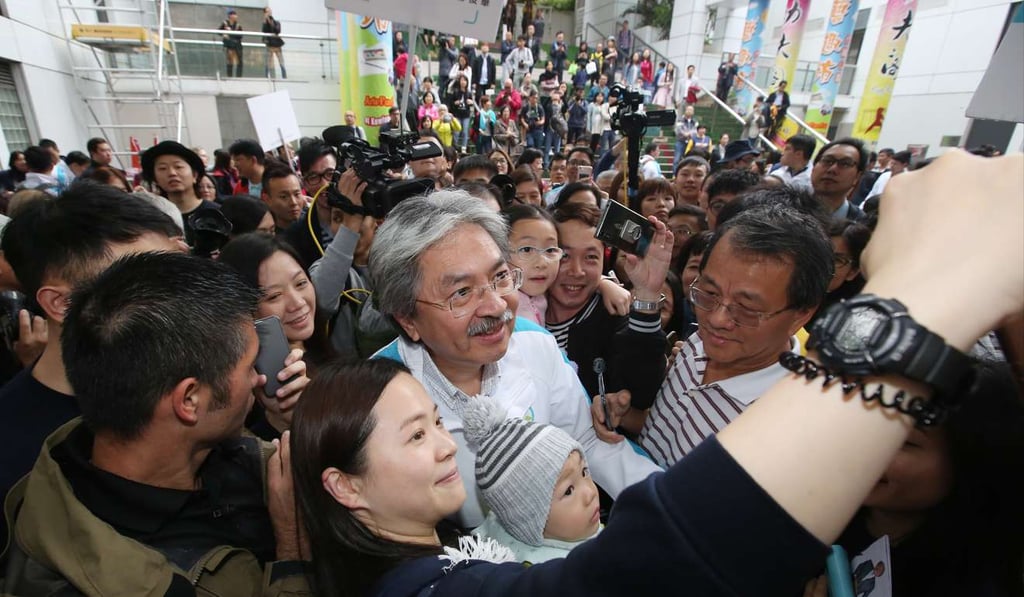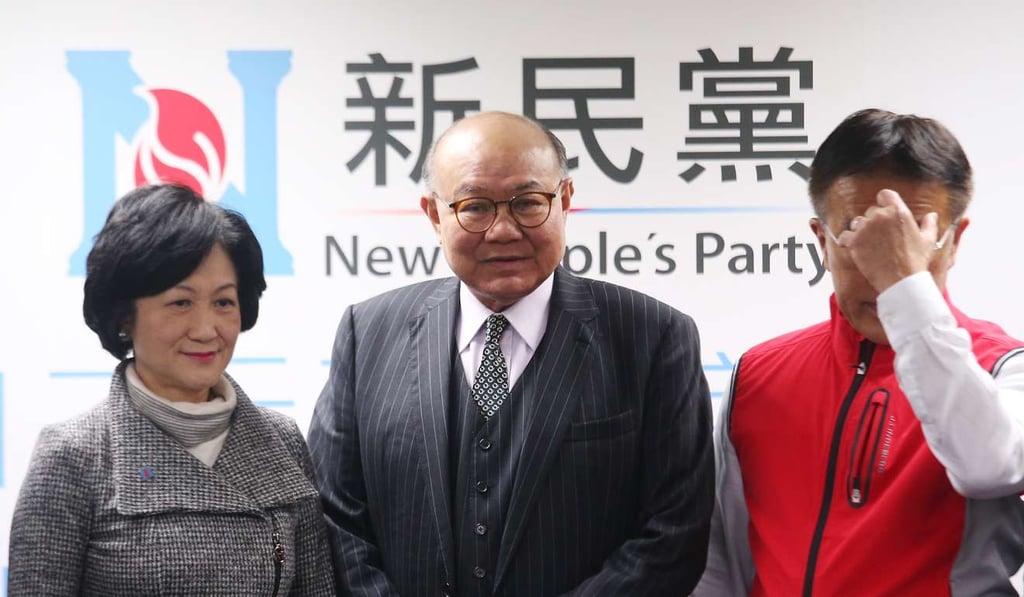Carrie Lam admits lobbying by Beijing liaison office in Hong Kong leadership race ‘may not work in her favour’
Chief executive race candidate also says it may create negative perception among public for her campaign

The front runner in Hong Kong’s chief executive race, Carrie Lam Cheng Yuet-ngor, has for the first time admitted that the lobbying by Beijing’s liaison office for her campaign is “not favourable” to her and may create a negative public perception.
Speaking on a radio show on Saturday, the former chief secretary was again asked how she felt after a number of Beijing loyalists had indicated she was the preferred choice.
Lam said it was understandable the central government was concerned about the election, “but if people feel more and more there is an external force helping, it may not be the most favourable to the candidate”.

The Post reported last week that Hong Kong’s richest man, Li Ka-shing, and his two sons were persuaded by Beijing’s No 3 man Zhang Dejiang over a meal last month to vote for Lam on March 26. Younger son Richard Li Tzar-kai told the press last week he would vote for Lam.
Lam said she did not know what exactly mainland officials had been doing or saying to Election Committee members, but she did hear from some and learnt from reports that “the situation certainly existed”.
